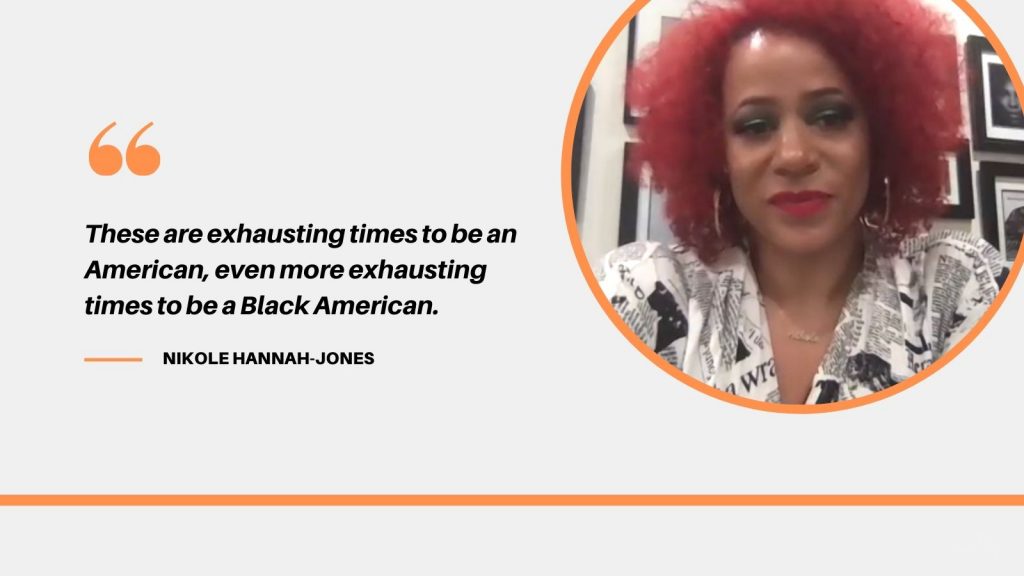Award-winning journalist discusses importance of the Black perspective
Journalist discusses importance of Black perspective

Award-winning Pulitzer Prize journalist Nikole Hannah-Jones made the second guest appearance of the year at the University Lecture series on Thursday night. The investigative journalist and activist spoke about her journey on sharing Black voices, “The 1619 Project,” the Black Lives Matter Movement and the importance of sharing the Black perspective.
In particular, Hannah-Jones reflected on her time as a student writer for her high school’s newspaper that erased Black voices. She recalled being a student at an all-white school where she, her siblings and one teacher were the only Black people in the building.
After reading the school’s newspaper, Hannah-Jones said she quickly noticed that Black voices were not being shared. She expressed how irritated and confused she was that Black Americans and their contributions to history were being erased. She brought her anger to her childhood teacher who told her, “Write about it, or get out of my classroom and stop complaining.”
And she did exactly that.
Following her teacher’s advice, Hannah-Jones began writing for a newspaper for a column titled ‘The Black Perspective,” where she created a platform for Black voices and shared stories through Black identities, which eventually led her to devote her writings to sharing the importance of Black Americans and their contributions to the history of the United States.
“I got into journalism to write certain stories,” she said.
In 2015, Hannah-Jones was introduced as a staff writer for The New York Times. Since then, she’s written articles focused on racial segregation and housing discrimination. Her most famous piece, which she highlighted in the lecture, is ‘The 1619 Project” that consists of short fiction, poems and a photo essay that depicts America’s deep rooted history of slavery and its aftermath.
Many historians criticized the piece, suggesting that the project denied historical understandings and requested that the piece be fact-checked. However, The New York Times refused the request and Hannah-Jones went on to become the Pulitzer Prize winner for Commentator 2020 under “The 1619 Project.”
“That’s the difference between journalists and historians,” she said. “Journalists write for the masses, we don’t write history.”
After “The 1619 Project” was published by The New York Times, Hannah-Jones said the piece gained popularity in the Black community, where they were excited that their ancestry and contributions to the nation’s history reached a platform of success and that their voices were finally being heard. She said her family members and readers alike shared the excitement and wanted their own personal copies of the piece.
“I was told my ideas weren’t good or valuable, and yet I wrote ‘The 1619 Project,’” she said in response to the critics.
At the height of the Black Lives Matter Movement following the deaths of George Floyd and Breonna Taylor, Hannah-Jones says that Black lives and their voices are in need of a platform that helps them reestablish their position in the nation. The nationwide protests allow Black identities to showcase their frustration with law enforcement officers while peacefully demanding change in the country. However, with the COVID-19 pandemic affecting many lives, protestors are at risk of catching the deadly virus or being beaten by police officers.
“These are exhausting times to be an American, even more exhausting times to be a Black American,” she said.
Hannah- Jones said she was frustrated with the treatment of Black lives and how little progress has been made, emphasizing how important it is to have the Black perspective.
“The problems are the same, the recommendations never are acted on,” she said. “The question now is: what are we going to do?”





